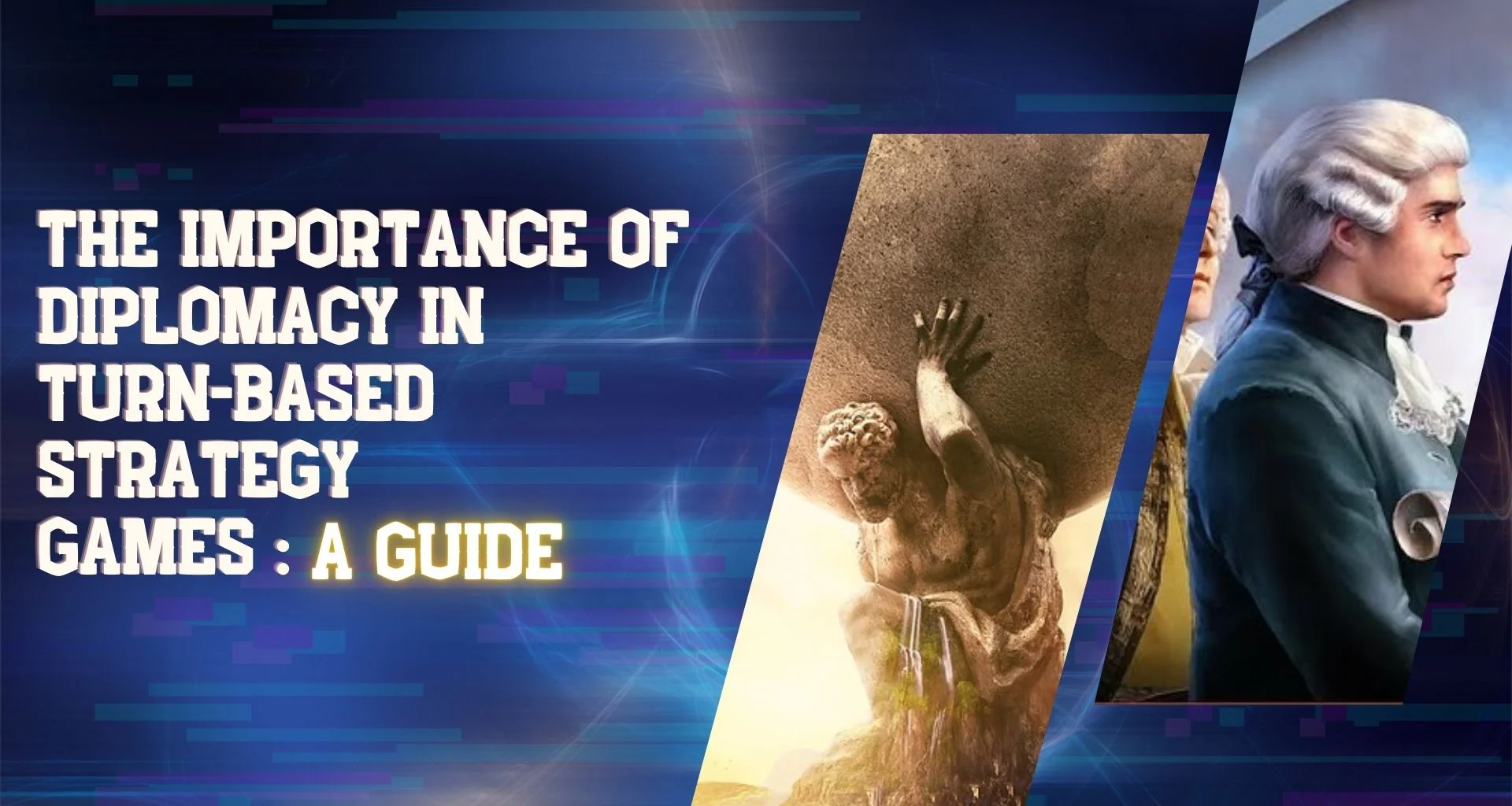For any of us that have spent hours playing a turn-based strategy game, we certainly know the thrill isn’t necessarily in the build-up of your empire or the conquering of your enemies. In many ways, true magic happens in much more subtle nuances: that of diplomacy. Think of diplomacy as your secret weapon-one that can change a precarious situation into a winning strategy. In this article, we will be discussing why diplomacy is used in such turn-based strategy games and show you how you can apply it to your advantage.
Key Strategies for Mastering Diplomacy
1. Create Strategic Alliances
Among the most powerful tools in your box will be strategic alliances. When you form with other players or factions, a coalition is created that will help surge larger threats and many times reach goals of mutual interest. Take Civilization VI as an example. Creating a strong alliance with any other civilization within the game is a changing move that can ensure that military forces not only come together to conquer territories but also have power over resources and technology for better positioning.
2. Negotiate Trade Deals
After all, trade deals are not just about give-and-take; they are about the leverage that involves itself with the deal. You can employ the use of trade negotiations as a way to work your way to a strong economy and an important alliance in strategy games such as Europa Universalis IV. Be it resources or technologies, such a deal will give you the high ground and guarantee the development and stability of your empire.
3. Use Diplomacy to Avoid War
Sometimes, one can win more by not fighting at all. Using diplomacy to get out of a dispute is sometimes the only way to prevent an expensive war and conserve your resources. Crusader Kings III is a very popular example where the avoidance of unnecessary conflicts aids in keeping the power of your dynasty intact. Make strategic decisions with due care in relationships for keeping your empire strong and stable.
4. Identify Potential Threats
That means keeping track of other players and factions. By doing so, the player is able to make out who may pose a threat early on and prepare and react accordingly. For example, in Stellaris, monitoring the actions of other empires and building up their militaries can help you predict conflicts and plan your future moves based on those predictions.
5. Deception and Misdirection
Sometimes, in order to win, one needs to get one’s hands dirty. Deception and misdirection are valid tools within the set of weapons of your diplomatic arsenal. You can effectively bluff and mislead the other players to retain for yourself the most favorable deals and elicit situations in your favor in the classic game of Diplomacy. This game is all about playing the long game and outsmarting your opponents.

Games Recommended for Diplomacy Lovers
1. Civilization VI
If you like diplomacy, then you must try Civilization VI. In its sophisticated way of diplomacy, one can form alliances, trade in resources, or declare war. You will have to pass the complex relations with other civilizations to have the prime status on this planet. It is a great mixture of strategy and diplomacy that will keep you on your toes.
2. Approach to Diplomacy
The name of the pure game of diplomacy, however, is Diplomacy. This classic board game saw a digital conversion wherein the whole gameplay was about negotiating and strategizing. You will form alliances, betray your enemies, and use your diplomatic skills to win. It’s great for testing and honing your diplomatic abilities.
3. Europa Universalis IV
In Europa Universalis IV, the game is all about diplomacy. With a great underpinning of diplomatic relations, you can negotiate peace treaties, alliances, and even arranged marriages within the game. Obviously set in a historical context, the depth and complexity at the heart of this game make it very dear to strategy gamers.
4. Crusader Kings III
Crusader Kings III brings the art of diplomacy to the Middle Ages with a strong focus on character relationships and political intrigue. Marry into the family, secure alliances, conduct planned assassinations. Then it focuses on points of diplomacy and intrigue that give it a varied interactive gameplay experience.
5. Stellaris
By doing so, the player ensures that his or her empire is on good terms with its neighbors, gives trade deals, creates alliances, and maintains balanced political situations within the Stellaris galaxy. All in all, the highly expansive universe, combined with the intricate system of diplomacy, makes Stellaris one of the most unique games in this genre.
Conclusion
Diplomacy in turn-based strategy games isn’t just a matter of talking your way out of trouble; it is a core aspect that might even make or break totally your strategy. Whether forging alliances in Civilization VI, negotiating trade deals in Europa Universalis IV, or practicing subterfuge in Diplomacy, the key to coming out on top so often involves mastering the art of diplomacy. Next time you jump into a strategy game, keep in mind: the art of negotiation and persuasiveness might just be your way out to victory. Continue polishing your diplomatic skill, and you will begin outsmarting rivals and realize your strategic goals with panache.

